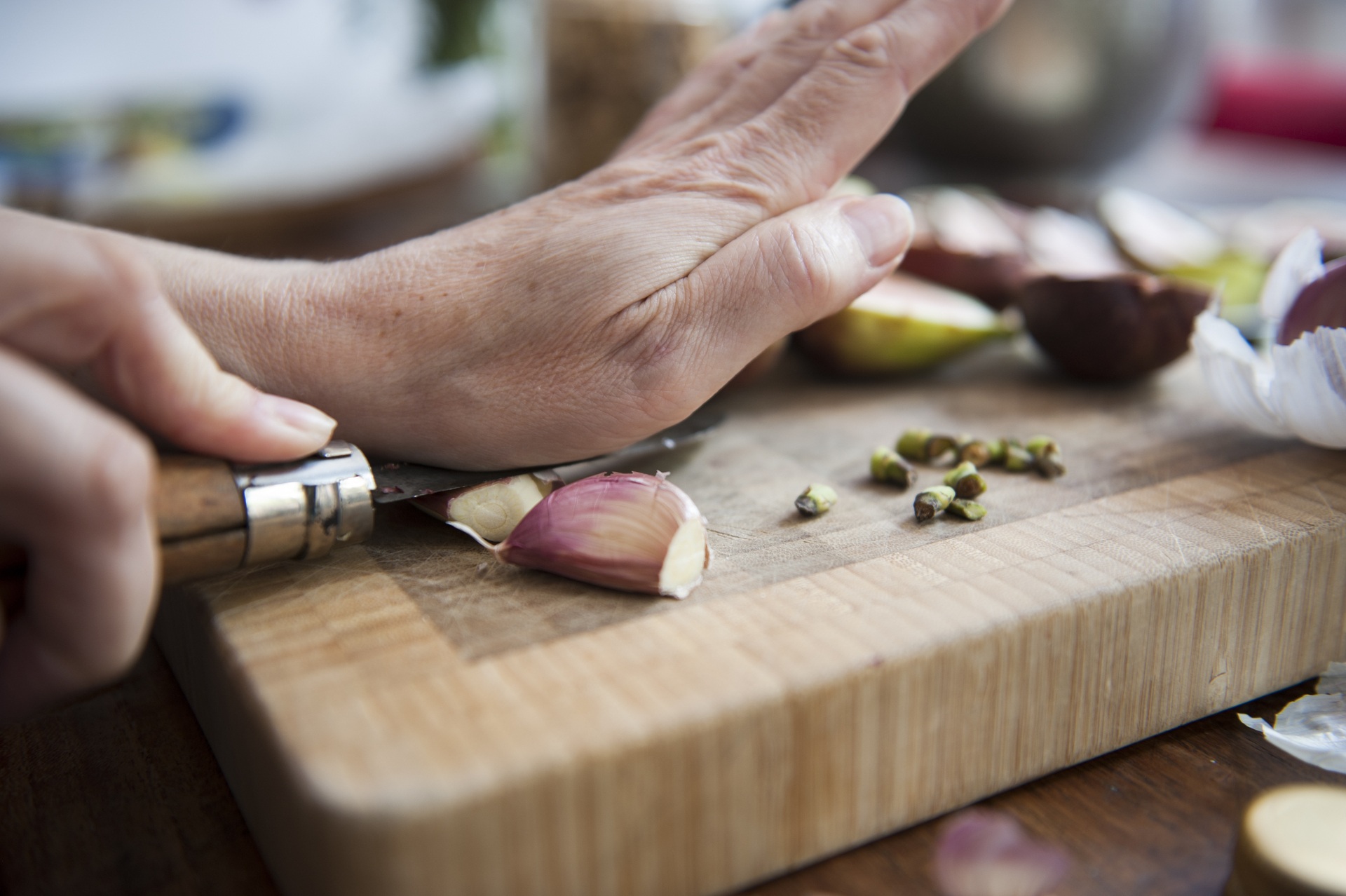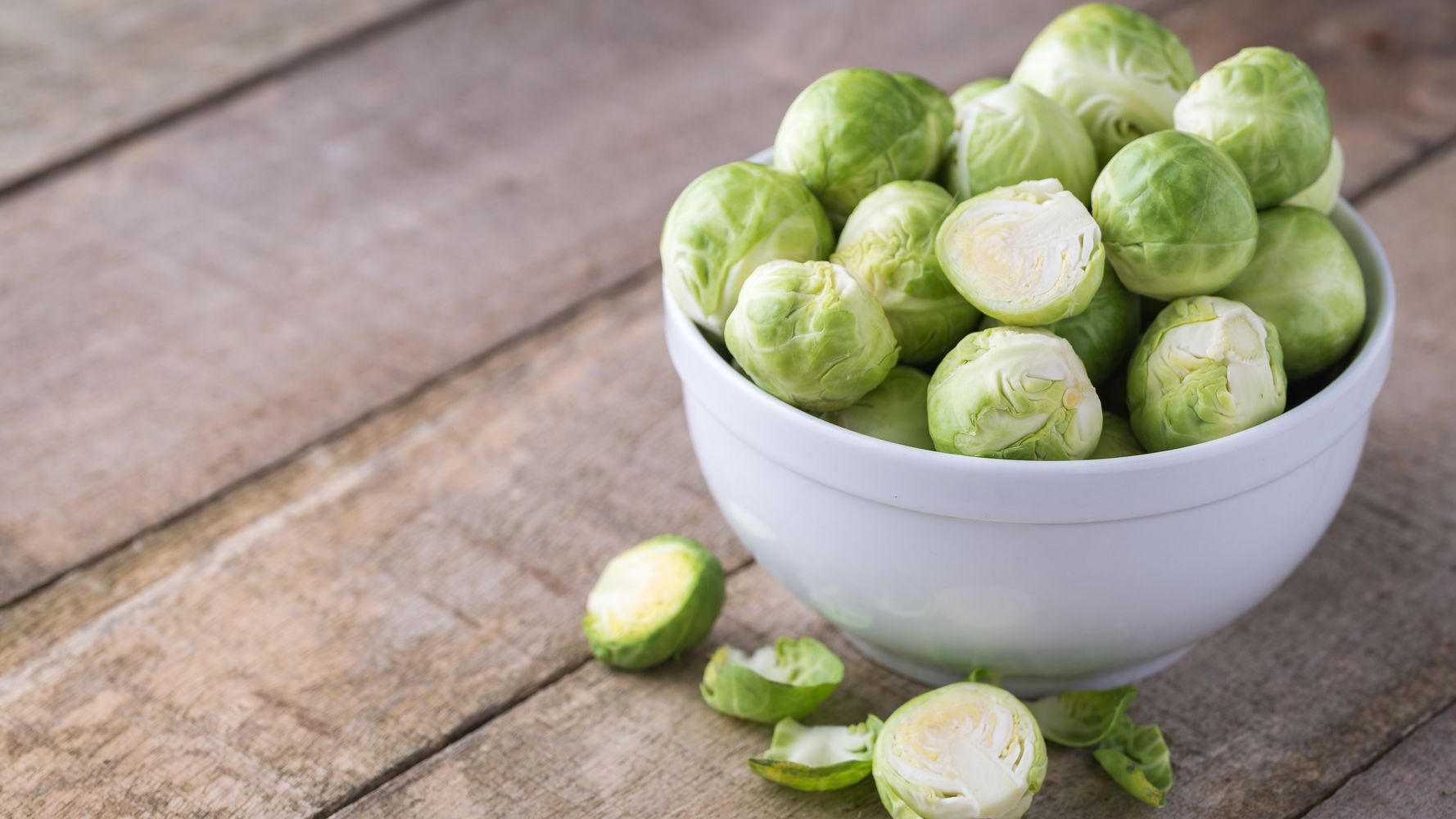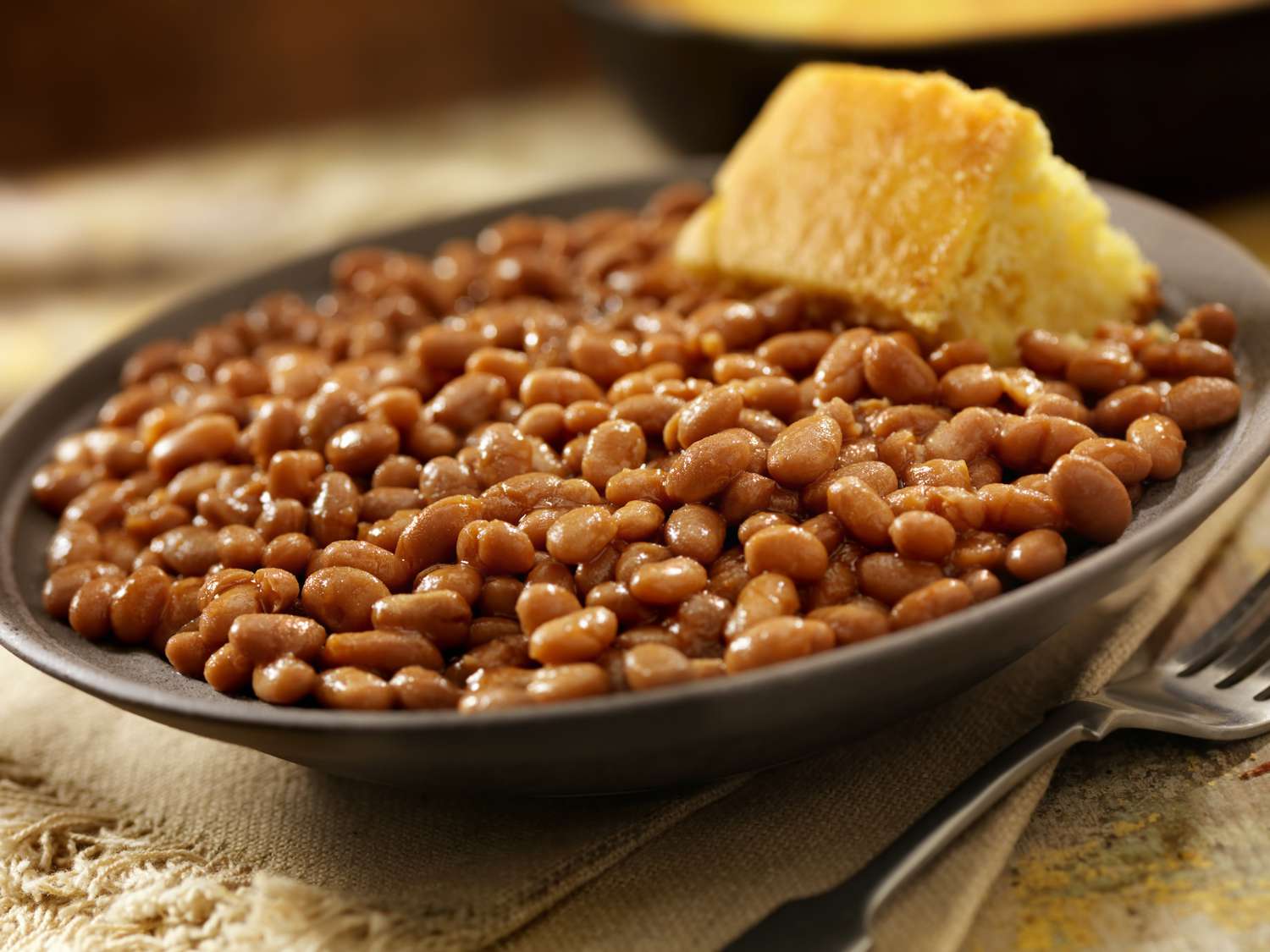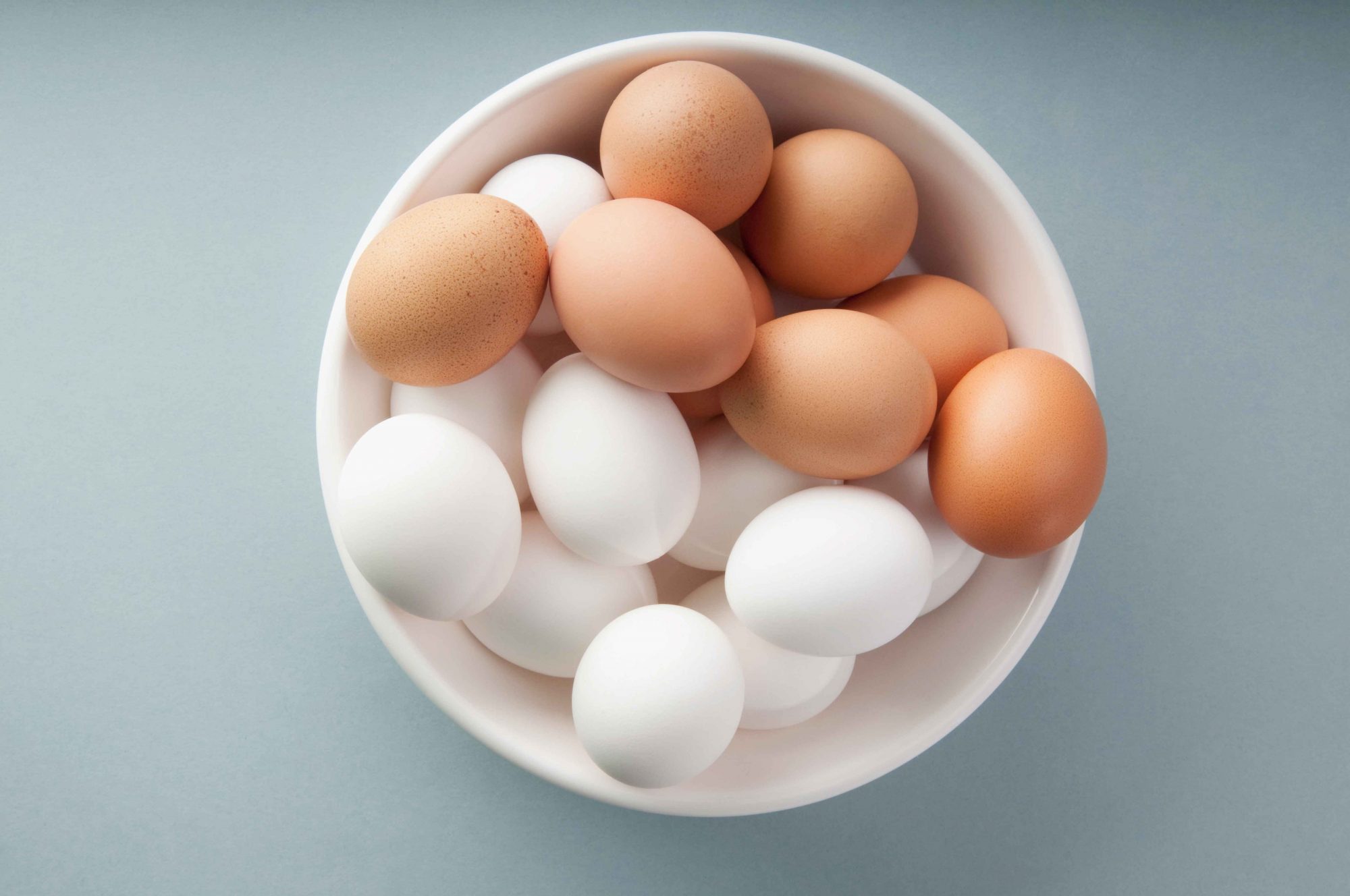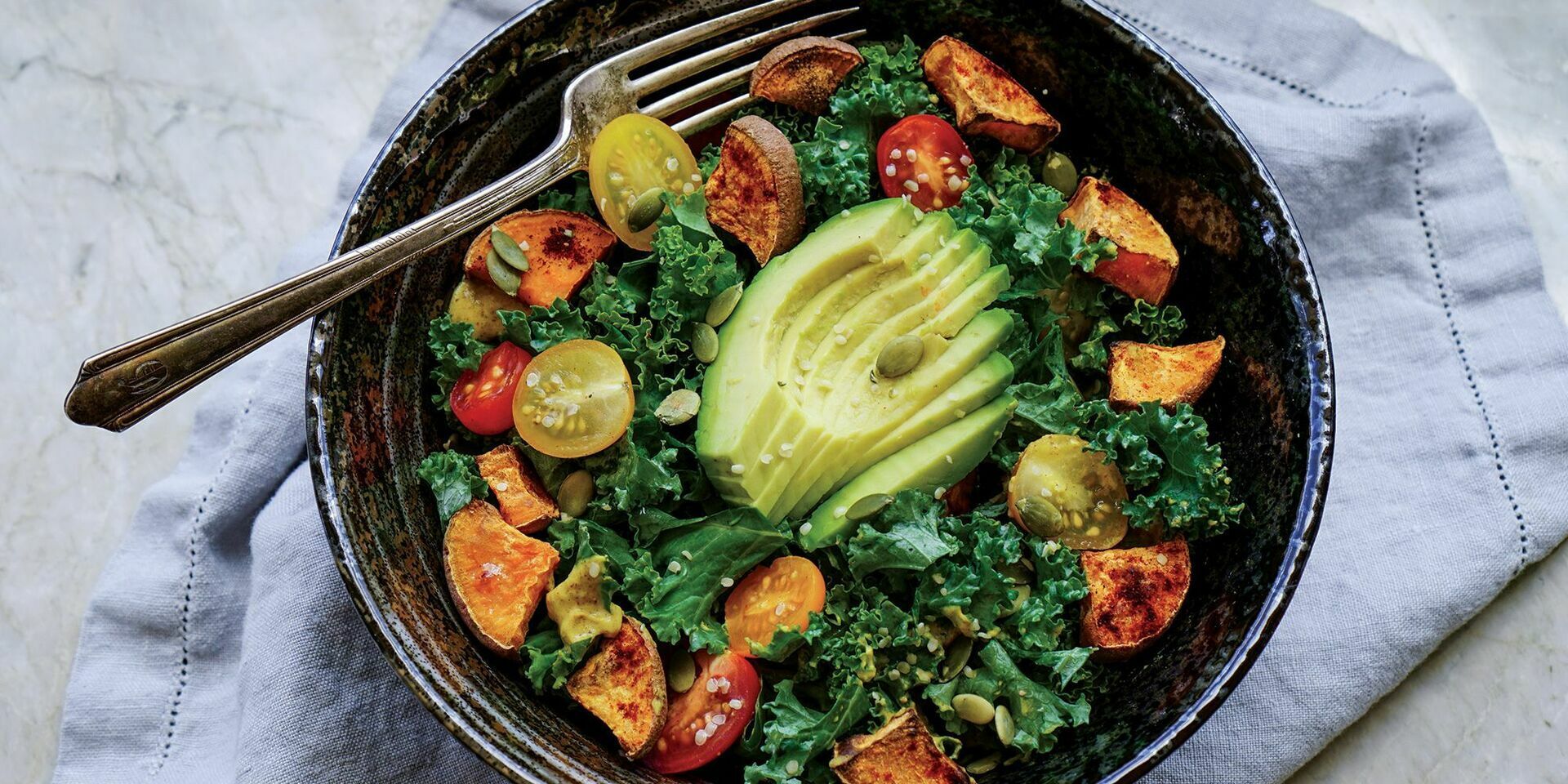

FAQs
Why Does Salad Make Me Fart
Modified: August 5, 2023
Discover the reasons behind why salad can cause flatulence and learn the answers to other general questions about this common occurrence.
(Many of the links in this article redirect to a specific reviewed product. Your purchase of these products through affiliate links helps to generate commission for Under-tec.com, at no extra cost. Learn more)
Table of Contents
Introduction
Salads are a popular choice for a healthy and refreshing meal. Packed with nutritious ingredients like leafy greens, vegetables, and fruits, salads provide a variety of health benefits. However, some people may experience an unpleasant side effect after consuming a salad – excessive farting. If you’ve ever wondered why salad makes you fart, you’re not alone. This article will delve into the reasons behind this phenomenon and provide strategies to alleviate the issue.
Gas is a normal part of the digestive process. When we eat, our bodies break down food in the stomach and small intestine. This process produces gas, which is typically released through burping or passing gas. However, certain foods can cause an increase in gas production, leading to discomfort and embarrassment.
As you’ll discover, the ingredients in a typical salad can contribute to excessive farting. Understanding the factors that contribute to this gas production can help you make informed choices about your salad ingredients and alleviate any discomfort you experience.
It’s important to note that occasional farting is a natural and healthy bodily function. However, if you are experiencing excessive or uncontrollable flatulence that is interfering with your daily life, it’s advisable to consult a healthcare professional to rule out any underlying medical conditions.
Understanding the Ingredients in Salad
Salads are often composed of a variety of ingredients, each contributing its own unique flavor, texture, and nutritional profile. To understand why salad may cause excessive farting, it’s important to take a closer look at these ingredients.
Leafy greens, such as lettuce, spinach, and kale, are the foundation of many salads. While these greens are highly nutritious and low in calories, they can also contain indigestible carbohydrates known as fibers. Fibers are essential for a healthy digestive system, but they can also ferment in the intestines, leading to gas production.
Vegetables like cucumbers, tomatoes, and bell peppers are common additions to salads. While these vegetables are generally well-tolerated, they still contain carbohydrates that can contribute to gas production. It’s worth noting that some individuals may have specific vegetable intolerances that can exacerbate gas symptoms.
Fruits, such as apples, grapes, or berries, are also commonly found in salads to add a touch of sweetness and flavor. These fruits contain natural sugars called fructose, which can be difficult for some people to digest. When indigestible sugars reach the large intestine, they can cause gas and bloating.
Protein sources like grilled chicken, tofu, or beans are often included to make a salad more filling and nutritious. While protein itself does not directly cause excessive farting, certain legumes like beans and lentils contain complex sugars that can ferment in the gut, leading to gas production.
Lastly, salad dressings can be a culprit when it comes to gas production. Many dressings contain ingredients like garlic, onions, or dairy products, which can be problematic for those with food sensitivities or intolerances.
Understanding the ingredients in salads gives us insights into the potential gas-producing factors. It’s important to note that everyone’s digestive system is unique, and some individuals may be more sensitive to certain ingredients than others. By pinpointing the specific ingredients that trigger excessive farting, you can make adjustments to your salad to enjoy the health benefits without the discomfort.
Fiber Content in Salad
Fiber is an essential nutrient found in abundance in salads, and it plays a crucial role in maintaining digestive health. However, the high fiber content in salads can also contribute to increased gas production and potentially make you fart more than usual.
There are two types of dietary fiber: soluble fiber and insoluble fiber. Soluble fiber dissolves in water and forms a gel-like substance in the digestive tract, while insoluble fiber adds bulk to the stool and helps promote regular bowel movements.
The soluble fiber in salads, such as pectin found in fruits and some vegetables, can be fermented by bacteria in the colon. During this fermentation process, gas is produced as a byproduct, leading to flatulence. Insoluble fiber, on the other hand, passes through the digestive system relatively unchanged and does not contribute significantly to gas production.
Leafy greens like lettuce and spinach are excellent sources of dietary fiber. They contain a good amount of insoluble fiber, which adds bulk to the stool and promotes regular bowel movements. However, they also contain some soluble fiber, which can contribute to gas formation.
While fiber is essential for a healthy digestive system, excessive consumption of fiber-rich foods can overwhelm the digestive process and lead to bloating and gas. Gradually increasing your fiber intake and giving your body time to adjust can help minimize gas production. Additionally, drink plenty of water to facilitate the movement of fiber through the digestive tract.
It’s also important to note that some individuals may be more sensitive to dietary fiber and may experience excessive gas even with small amounts. If you find that fiber-rich salads consistently cause discomfort, you may need to consult a healthcare professional to rule out conditions like irritable bowel syndrome (IBS) or other digestive disorders.
To manage excessive farting caused by fiber-rich salads, consider incorporating other low-fiber ingredients into your salad or opting for smaller portions. Experimenting with different types of greens and vegetables that are lower in fiber content can also help reduce gas production while still enjoying the nutritional benefits of salads.
Resistant Starch and Gas Production
One factor that contributes to excessive farting after consuming a salad is the presence of resistant starch. Resistant starch is a type of carbohydrate that resists digestion in the small intestine, reaching the large intestine intact. Once in the large intestine, it becomes a food source for gut bacteria, leading to the production of gas as a byproduct.
Resistant starch can be found in a variety of foods, including starchy vegetables like potatoes or corn, as well as certain grains and legumes. It can also be formed during the process of cooking and cooling certain foods, such as rice or pasta salads.
In salads, some common sources of resistant starch include cold potato salads or salads with leftover cooked grains. These foods contain a higher amount of resistant starch compared to their cooked and hot counterparts. When consumed, the resistant starch undergoes fermentation by gut bacteria, leading to increased gas production and potential farting.
It’s important to note that not all salads contain resistant starch, and the levels can vary depending on the ingredients. For individuals who are sensitive to resistant starch or prone to excessive gas production, it may be helpful to avoid or limit the consumption of salads with high resistant starch content.
To minimize the effects of resistant starch on gas production, some strategies can be implemented. Firstly, opting for cooked or warm ingredients in salads rather than cold or cooled ones can reduce the amount of resistant starch. Additionally, if including starchy vegetables like potatoes, steaming or baking them before adding to the salad can help break down some of the resistant starch, making them more easily digestible.
Lastly, for individuals who find that resistant starch-containing salads consistently lead to excessive farting, it may be beneficial to experiment with other salad combinations that have lower levels of resistant starch. Focus on incorporating non-starchy vegetables and protein sources instead to still enjoy a satisfying and nutritious salad without the unwanted gas.
Cruciferous Vegetables and Farting
Cruciferous vegetables, such as broccoli, cauliflower, Brussels sprouts, and cabbage, are highly nutritious and often included in salads for their health benefits. However, these vegetables are known to cause excessive farting in some individuals.
Cruciferous vegetables contain a carbohydrate called raffinose, which is not easily broken down by the human digestive system. As a result, when consumed, raffinose reaches the large intestine undigested, where it is then fermented by gut bacteria. This fermentation process leads to the production of gas, causing bloating and flatulence.
In addition to raffinose, cruciferous vegetables also contain sulfur compounds. When these compounds are broken down by bacteria in the colon, they release sulfurous gases, contributing to the unpleasant odor often associated with farting after consuming these vegetables.
While cruciferous vegetables are incredibly nutritious and offer a wide range of health benefits, they can be problematic for those who are particularly sensitive to the gas-producing effects. It’s important to note that not everyone will experience excessive farting after consuming these vegetables, as tolerance varies from person to person.
If you find that cruciferous vegetables consistently cause excessive gas and discomfort, there are several strategies you can try. Firstly, cooking these vegetables can help break down some of the complex carbohydrates and make them more digestible. Steaming or lightly sautéing cruciferous vegetables can significantly reduce their gas-producing effects.
Another approach is to gradually increase your consumption of cruciferous vegetables over time. This allows your digestive system to adapt and produce the necessary enzymes to break down the carbohydrates more efficiently. Starting with smaller portions and gradually increasing the serving size can also help minimize gas production.
It’s worth noting that some individuals may have underlying conditions such as irritable bowel syndrome (IBS) or small intestinal bacterial overgrowth (SIBO) that could make them more sensitive to the gas-producing effects of cruciferous vegetables. If you suspect you have such conditions, it’s best to consult with a healthcare professional for guidance on managing your symptoms and dietary choices.
While cruciferous vegetables can contribute to excessive farting, it’s essential to remember that they are still an important part of a healthy diet. Their numerous health benefits, including being high in vitamins, minerals, and fiber, make them valuable additions to a well-rounded nutritional plan. Balancing your intake of cruciferous vegetables with other non-gas-producing foods can help you enjoy their benefits without the unwanted flatulence.
Food Intolerances and Gas
Experiencing excessive gas and farting after eating a salad may be attributed to food intolerances. Food intolerances occur when your body has difficulty digesting certain ingredients, leading to gastrointestinal symptoms such as gas, bloating, and discomfort.
Common food intolerances that can contribute to gas production include lactose intolerance and fructose intolerance. Lactose intolerance occurs when the body lacks the enzyme lactase, which is needed to break down lactose, a sugar found in dairy products. Consuming salads with dairy-based dressings or cheese can lead to gas formation and bloating in individuals with lactose intolerance.
Fructose intolerance, also known as fructose malabsorption, refers to the body’s inability to fully absorb and digest fructose, a sugar naturally present in fruits and some vegetables. For those who are fructose intolerant, consuming salads with high amounts of fructose-containing ingredients like apples, pears, or high-fructose corn syrup-based dressings can trigger excessive gas production and other gastrointestinal symptoms.
In addition to lactose and fructose intolerance, individuals with irritable bowel syndrome (IBS) may also experience increased gas and farting after eating certain foods, including salads. IBS is a gastrointestinal disorder characterized by symptoms such as abdominal pain, bloating, and changes in bowel habits. Some individuals with IBS may find that certain salad ingredients, such as high-fiber vegetables or cruciferous vegetables, exacerbate their symptoms.
If you suspect that food intolerances are contributing to your excessive farting after eating salads, it may be beneficial to keep a food diary or try an elimination diet. Elimination diets involve temporarily eliminating specific foods or food groups suspected of causing symptoms, then gradually reintroducing them to identify the specific triggers. Consulting a healthcare professional or a registered dietitian can provide guidance and support throughout this process.
Furthermore, some individuals may have sensitivities or intolerances to specific ingredients used in salad dressings, such as garlic, onions, or certain spices. These ingredients can cause gastrointestinal discomfort and lead to increased gas production. Opting for dressings without these ingredients or making your own dressings using alternatives can help alleviate these symptoms.
Overall, identifying and managing food intolerances is crucial for individuals who experience excessive farting and gas after consuming salads. Understanding your specific sensitivities and making suitable modifications to your salad ingredients can help you enjoy a satisfying and bloat-free dining experience.
Strategies to Reduce Farting after Eating Salad
If you find that you’re experiencing excessive farting after eating salad and it’s causing discomfort, there are several strategies you can employ to help alleviate the issue:
1. Chew your food thoroughly: Properly chewing your food helps break it down into smaller particles, making it easier for your digestive system to process. Take your time and chew each bite thoroughly before swallowing.
2. Avoid carbonated beverages: Carbonated drinks can introduce extra gas into your digestive system, leading to increased flatulence. Opt for still water or herbal teas instead.
3. Cook cruciferous vegetables: If you’re particularly sensitive to gas produced by cruciferous vegetables like broccoli or cauliflower, try lightly steaming or sautéing them. This can help break down some of the gas-inducing compounds and make them easier to digest.
4. Gradually increase fiber consumption: If you’re not used to consuming high-fiber salads, slowly increase your fiber intake over time. This allows your digestive system to adjust to the higher fiber load and reduces the likelihood of excessive gas production.
5. Be mindful of portion sizes: Sometimes, consuming large portions of salad can overwhelm your digestive system, leading to increased gas production. Consider reducing your portion sizes and focusing on quality rather than quantity.
6. Be aware of food intolerances: If you suspect certain ingredients in your salad may be causing gas due to food intolerances, keep a food diary to identify potential triggers. Eliminate these ingredients for a period and reintroduce them one at a time to narrow down the specific culprits.
7. Opt for low-gas vegetables: While cruciferous vegetables contain numerous health benefits, they are notorious for causing gas. If you’re looking to reduce flatulence, choose lower-gas vegetables like cucumber, zucchini, or bell peppers as your salad base.
8. Experiment with different salad combinations: Everyone’s digestion is unique, so don’t be afraid to experiment with different salad ingredients. Pay attention to how your body reacts to specific combinations and tailor your salads to suit your individual needs.
9. Consider digestive aids: There are over-the-counter digestive aids available, such as enzymes or probiotics, that may help improve digestion and reduce gas production. Consult with a healthcare professional to determine if these options are suitable for you.
Remember, occasional farting is a natural bodily function. However, if excessive flatulence or digestive discomfort persists, it’s advisable to consult a healthcare professional to rule out any underlying digestive disorders or medical conditions.
Conclusion
While salads are an excellent choice for a healthy and nutritious meal, some people may find themselves experiencing excessive farting after consuming them. Understanding the factors that contribute to gas production can help you make informed choices about your salad ingredients and implement strategies to reduce discomfort.
The fiber content in salads, including soluble and insoluble fibers, can contribute to gas formation. Gradually increasing fiber intake, staying hydrated, and opting for lower-fiber veggies can help minimize gas production.
Resistant starch, typically found in cooled or reheated starchy ingredients, can also contribute to excessive farting. Cooking ingredients well and avoiding excessive reliance on resistant starch-containing foods in salads can alleviate gas symptoms.
Cruciferous vegetables, while highly nutritious, are known to cause flatulence due to their raffinose content. Cooking them lightly and gradually increasing consumption can help reduce gas production.
Food intolerances, such as lactose or fructose intolerance, can also contribute to excessive farting. Identifying and managing intolerances through elimination diets or working with healthcare professionals can help address these issues.
Finally, adopting strategies such as chewing thoroughly, mindful portion control, and being aware of carbonated drink consumption can also minimize gas production and discomfort after eating salads.
Remember that everyone’s digestion is unique, and what works for one person may not work for another. Pay attention to how your body reacts to different ingredients and make adjustments accordingly.
It’s important to note that occasional farting is a natural and healthy bodily function. However, if excessive flatulence persists, interferes with your daily life, or is accompanied by other severe symptoms, it’s advisable to consult a healthcare professional for further evaluation.
By understanding the reasons behind farting after eating salads and implementing the strategies outlined in this article, you can continue to enjoy the health benefits of salads without the discomfort and embarrassment of excessive gas.


